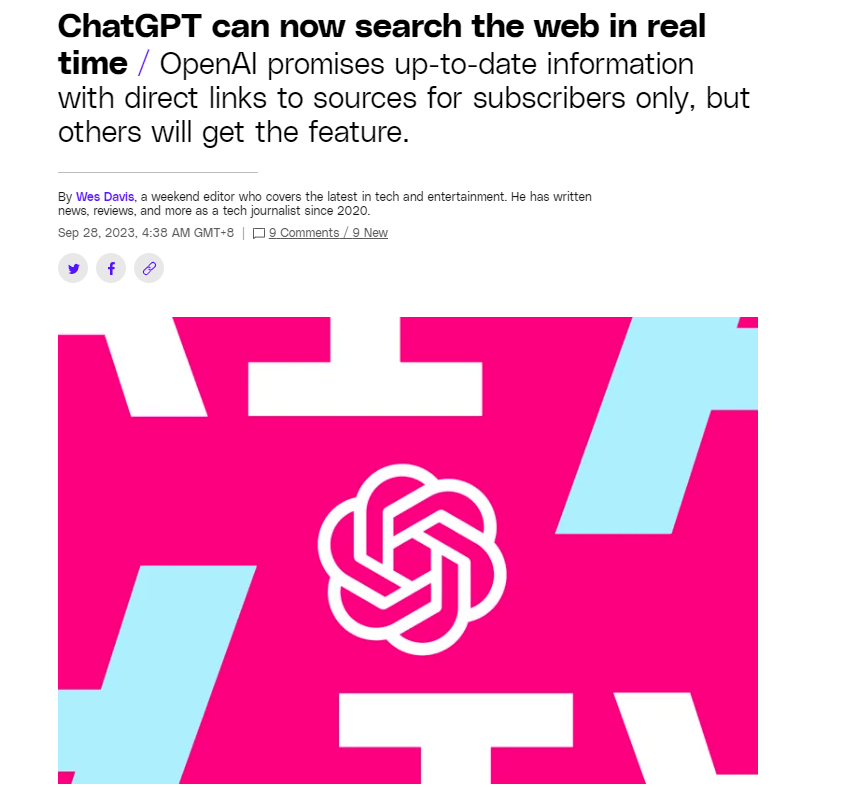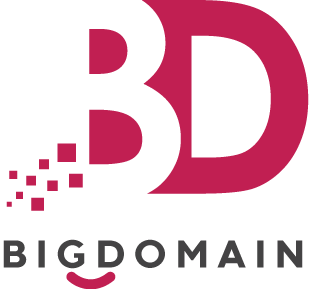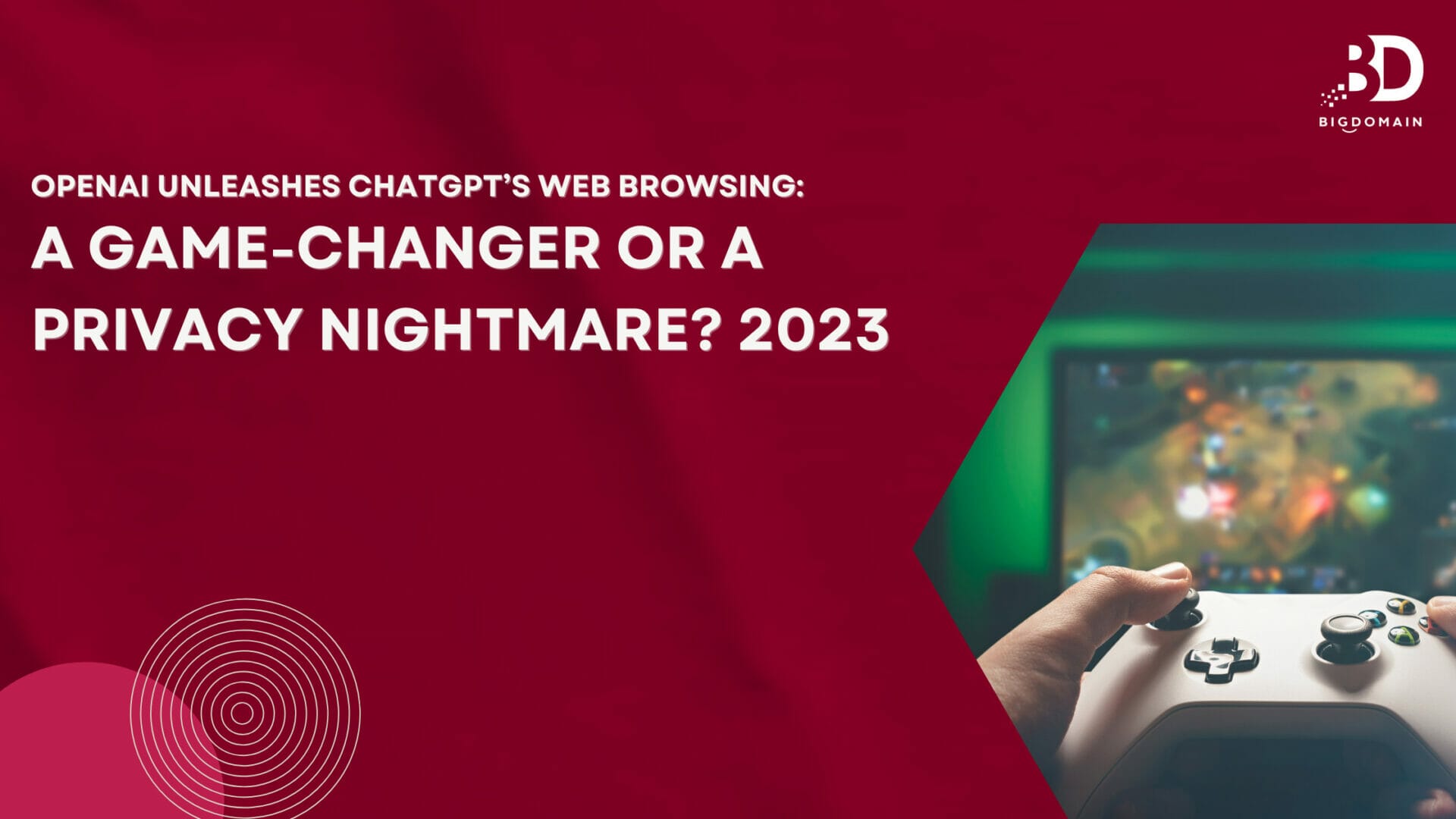ChatGPT annoucement on Web Browsing
On September 28, 2023, OpenAI unveiled on Twitter (now X.COM) a groundbreaking feature called ‘Search the Web’ for ChatGPT, marking a pivotal expansion in its information retrieval capabilities. This enhancement transcends the prior limitation of data only up to September 2021, offering a live gateway to the web and significantly broadening the scope and relevance of information accessible by ChatGPT.
The backbone of this feature is Bing’s search API, which empowers ChatGPT to execute real-time web searches, fetching the latest and most authoritative information available online. This not only enriches the answers provided but also offers direct links to sources, akin to Bing’s functionality. This development is substantial as it aligns ChatGPT with some of the existing AI assistants, enhancing its utility exponentially.
Initially rolled out to Plus and Enterprise users, there are plans to extend this feature to all users shortly. Activation is straightforward for those with a ChatGPT Plus subscription; they simply need to select the “Browse with Bing” option under GPT-4 in the settings to enable this feature.
This innovation is part of a broader series of updates aiming to nudge ChatGPT closer to renowned AI assistants like Apple’s Siri, by integrating voice conversations and image interactions. These advancements significantly enrich the interactive experience, morphing ChatGPT into a more robust and versatile assistant across various domains.
However, like every technological leap, the Search the Web feature brings along a set of challenges and limitations. Concerns hover around the potential bypass of paywalls, access to harmful or misleading material, and unintended breach of copyrighted content. Additionally, enabling this feature necessitates users to enable their chat history, implying a share of personal data with the model, a notion not very appealing to privacy-centric individuals.
User Reviews and Feedback – on ChatGPT Web Browsing:
The new feature has garnered a mix of reviews from the user community. Here are some of the points based on the feedback gathered from different online platforms:
- Positive Reception:
- Users are appreciative of ChatGPT’s ability to access current and authoritative information from the internet, along with citing sources in its answers. They find this feature useful and convenient, enhancing ChatGPT’s versatility and reliability. This has been echoed in reviews on ZDNet and The Verge.
- Subscription Limitation:
- Some users expressed disappointment that the web browsing feature is only available to Plus and Enterprise subscribers for now. They find it limiting for free users who are also keen on trying out the new functionality, as highlighted on Slashgear.
- Privacy and Safety Concerns:
- There are users concerned about the potential risks and challenges, such as privacy issues, paywall bypassing, harmful content, misinformation, and data leakage. They hope that OpenAI will address these issues to ensure the safety and quality of the feature.
- Performance and Accuracy:
- Some users have reported dissatisfaction with ChatGPT’s performance and accuracy when utilizing the web browsing feature. They mention instances where ChatGPT provides incorrect, biased, or irrelevant information or fails to handle complex or ambiguous questions, as noted on Trustpilot.
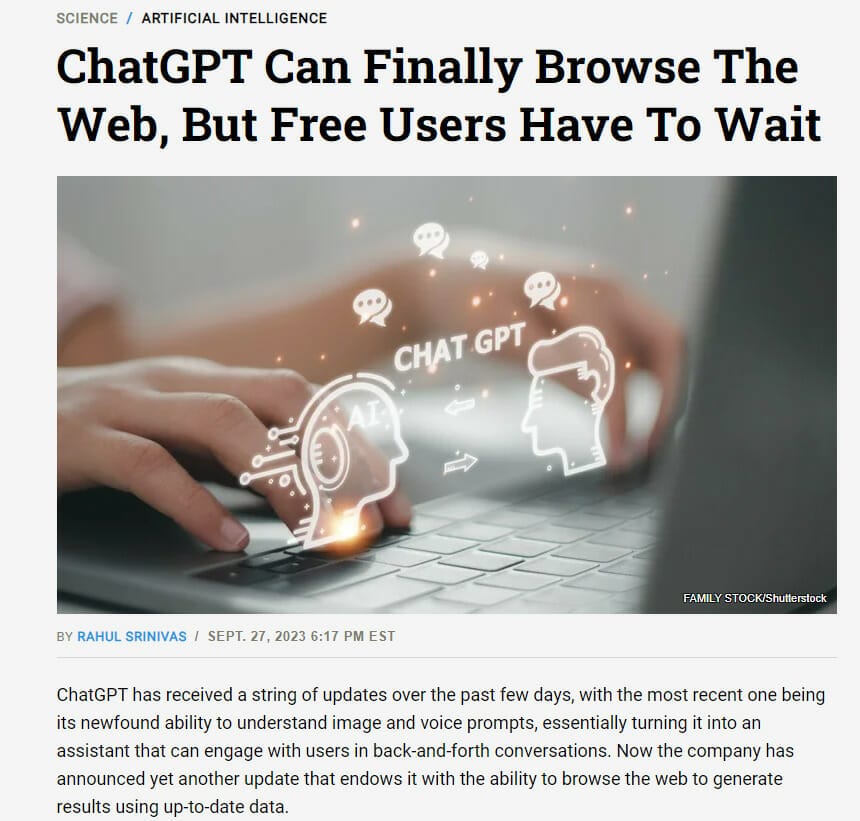
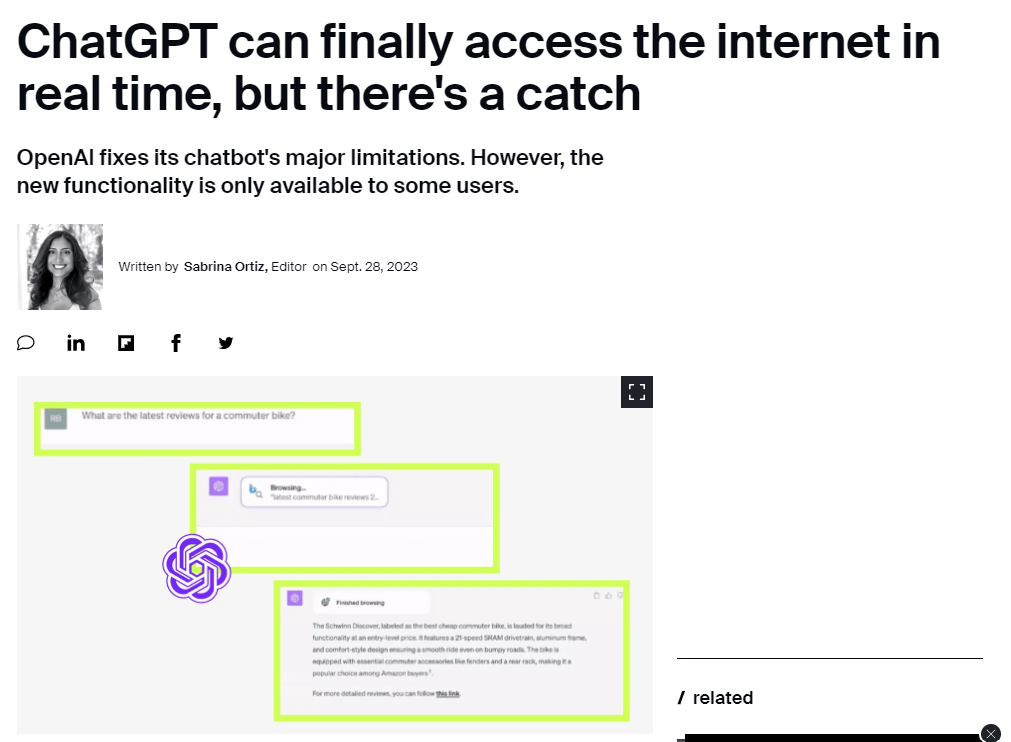
Despite these mixed reviews, the Search the Web feature is a step forward in making ChatGPT a more resourceful and up-to-date assistant. The potential for refinement and the proactive feedback from the user community pose a promising trajectory for addressing the identified challenges. As OpenAI continues to fine-tune and broaden ChatGPT’s capabilities, the horizon looks promising for users and the broader AI community.
